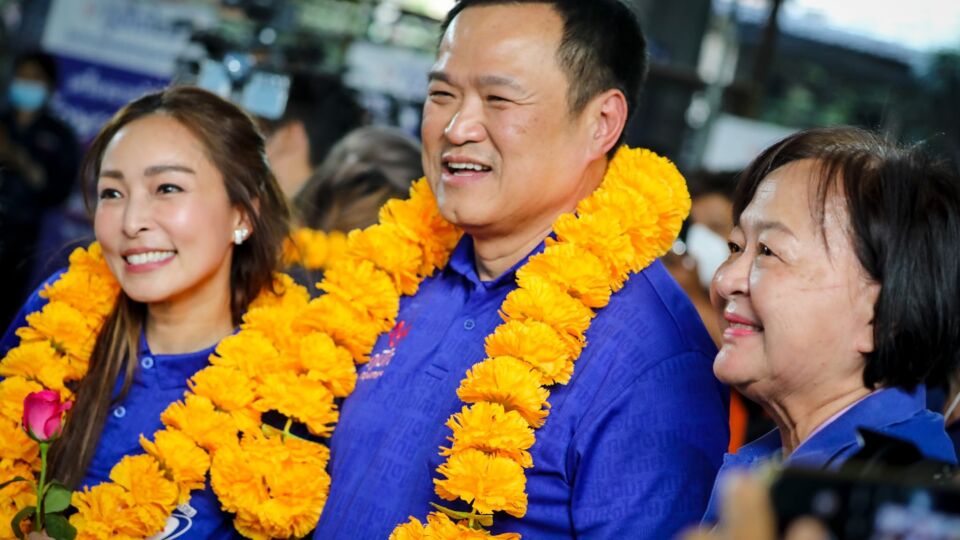The health minister who ushered in legal weed and now wants to be prime minister took a tough-on-drugs position last night that represented a sharp reversal of the slow-moving push to wind down Thailand’s destructive war on drugs.
Anutin Charnvirakul’s vow to enact harsh penalties for those who even possess small amounts of meth and prosecute anyone with two or more tablets as a drug dealer would undo a seven-year effort to replace zero-tolerance dtrrug policies with those based on common sense.
Anutin has taken equal parts credit and heat as the public face of legal weed. Now, with an election looming in which he hopes to lead his Bhumjaithai Party to victory and be named premier, his attempt to assuage weed-wary voters with an easy sound bite is based on poorly conceived and backward policy.
It’s far from what the original proponent of legalization, former junta Justice Minister Paiboon Koomchaya, laid out in 2016 when he declared defeat in the war on drugs and announced that weed and meth would be decriminalized by that year’s end.
The decriminalization of cannabis last year actually traces back to direct military rule under the junta which seized power in 2014, and the epiphanies of Gen. Paiboon, a former deputy supreme army commander and member of the king’s Privy Council.
Paiboon was moved in part by Thailand’s unusually high rate of incarceration, which has filled prisons with people convicted of minor drug offenses – particularly women.
Among a raft of policy prescriptions to liberalize drug policy, Paiboon insisted that methamphetamines, known as yaba, must be made legal as jailing small-time users did more harm than good. He said that he rethought his hardline approach to drug policy while attending a U.N. conference on drugs in New York.




